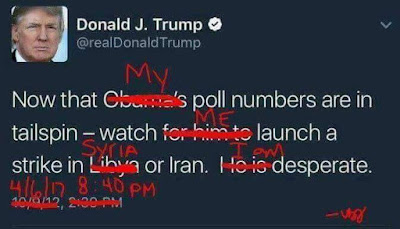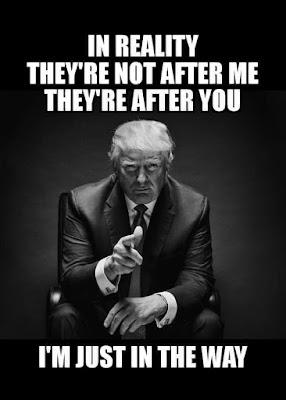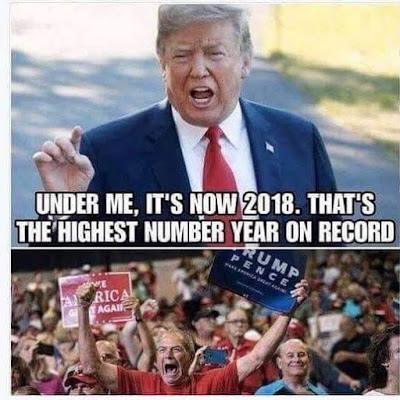Over the weekend I received an email with the subject line: "Do you know who owns this image?" The inquiry came from a different corner of Colorado; the person found the meme below on my blog, and was asking if I knew its origin, as they said they were interested in putting the image on a billboard.
I had no information to share: memes are generally uncited and shared freely, and this one-- like the hundreds of others I have posted to this blog-- came without attribution. Whether this image, or any meme I've copied and provided, has or will appear on a billboard I cannot determine. I do know that the meme remains an important component of the United States' rhetorical conversations, despite being ignored by mainstream media. Memes are not usually born of corporations, but rather represent the crude image-editing endeavors of real people (or foreign governments' propaganda machines), for casual consumption and sharing via social media.
I began collecting memes prior to the Presidential election of 2016, and wondered then what the future of the meme would be. Interestingly, the form has not fallen into disuse, but rather continues to serve as a viable and immediate means of response to political, social, racial, and economic issues. Nike's advertising campaign featuring Colin Kaepernick inspired hundreds of iterations; Brett Kavanaugh's nomination to the Supreme Court and accusations of his sexual assault in college similarly inspired a wave of memes.
What is a meme? My definition includes not only clever Photoshop distortions and infographics, but political cartoons, tweets and responses, and screenshots: images commonly distributed within the same channels as memes. One form of meme that has become interestingly popular involves the captioning of individuals, to represent a rhetorical situation (one that is repeated in this collection involves a man looks adoringly at another woman while his female partner looks at him with scorn). Other memes continue to draw from popular culture: one interesting meme in this collection includes Will Ferrell and the Photoshopped head of Donald Trump, in a scene from a Saturday Night Live sketch. As Hurricane Florence approached the east coast earlier this month, one Facebook group devoted to memes challenged its participants to a contest involving the image of Trump tossing paper towels in Puerto Rico. Efforts such as these reinforce the importance of the form, and make certain its the continued evolution. The email inquiry I received raises questions about the timeliness of memes-- and their potential to serve rhetorical purpose more than once.
As with other posts that collect memes, I provide this disclaimer: these images are provided here without attribution (except where images include a stamp alleging citation), and my reposting does not indicate my support of any given political stance or position. These memes were collected from various Facebook groups, including "Bernie Sanders' Dank Meme Stash." I do not agree with all the memes presented here; rather, they are provided for historical value and posterity.






























































































































































































































































































































































